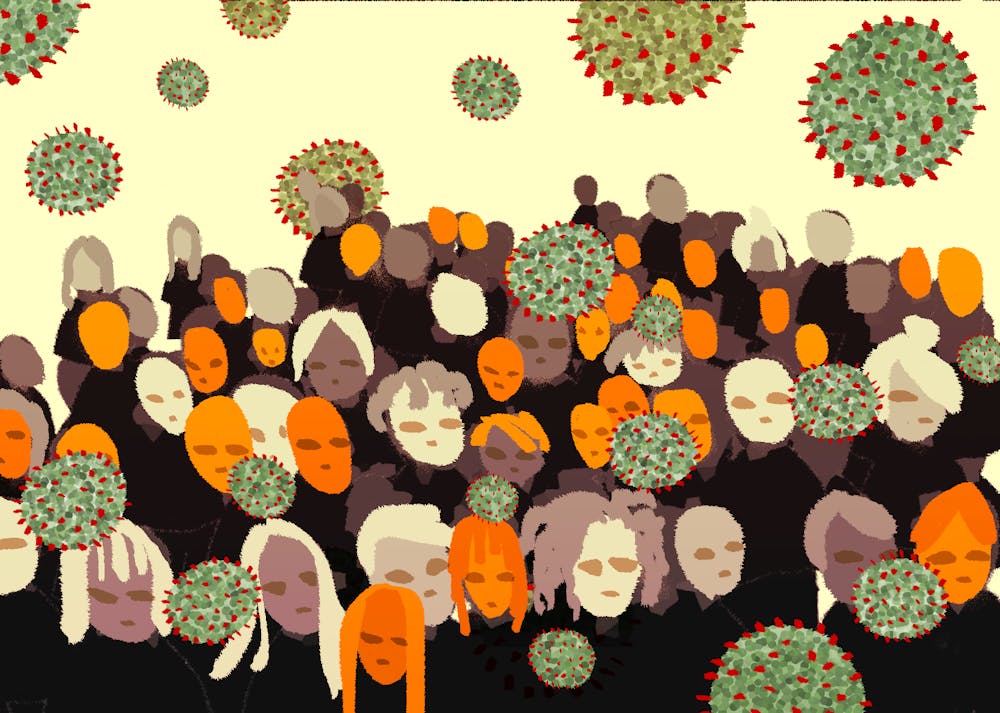Beware of the coronavirus — it will make you lose your senses. Trust me, I learned the hard way.
In July 2020, I was working at a local restaurant in Colleyville, Texas, when I contracted the novel coronavirus. Initially, it felt like a little head cold, but it quickly morphed into something much worse.
I completely lost my sense of taste and smell by day two. You could hold ammonia salts up to my face and I wouldn't wince.
Everything was senseless.
In late September, my senses returned. However, some part of me wishes it hadn't.
Things began to have highly distorted flavors and odors which would often result in a loss of appetite.
These peculiar sensory perceptions are nearly impossible to describe as they are incomparable to any other taste or smell. I've adopted the term "COVID-sense" when referring to the odd sensation that accompanies various scents and flavors.
The virus only lasted a week, yet I am still living with symptomatic complications. It's been seven months and nothing has improved, and my story is not the only one.
Many people recover from the coronavirus rapidly, but some experience long-term symptoms that can last anywhere from a few weeks to several months. Researchers are calling these individuals "long haulers."
Research shows approximately 10% of recovered patients become long haulers. They experience lasting symptoms that include shortness of breath, body aches, fatigue, loss of taste and smell, respiratory malfunctions and insomnia.
Anyone can become a long hauler regardless of their age or severity of illness, although many speculate that young people are particularly susceptible to developing long-term symptoms.
My sister-in-law Emily Lumkes, a recent ASU graduate, contracted COVID-19 in November and experienced severe oxygen deprivation, known as hypoxia, which caused her blood pressure to increase to life-threatening levels.
"I'm still recovering," Lumkes said. "I can hardly carry 20 pounds a couple yards without having to stop and take a break because I'm exhausted and I can't breathe well."
In addition to physical therapy, the 26-year-old frequently utilizes an oxygen respirator and wheelchair to assist her when completing particularly demanding tasks.
"I feel like I'm still at a point where my world kind of revolves around having post-COVID complications," Lumkes said. "I don't even feel close to how I used to feel."
Long-term symptoms can have a tremendous impact on mental health. Many individuals report feeling depressed, anxious or exasperated from experiencing a lack of normalcy in their routines. For most, those feelings come with the territory of the pandemic, however, for those of us still living with complications, it feels like an endless struggle.
"It's been really difficult. The biggest thing I have a hard time with is being anxious because there’s so much uncertainty about my condition," Lumkes said.
We have yet to attain extensive knowledge about COVID-19 and its lasting effects, but we can look to ongoing research for insight and answers.
A recent study conducted at Harvard University identified how coronavirus specifically targets the supportive cells for olfactory sensory neurons thereby causing a loss of smell, called "anosmia," which can also lead to a loss of taste, or "ageusia."
Findings suggest anosmia may not be permanent because the virus only attacks the supportive cells to the olfactory senses rather than harming the neurons themselves.
Through critical examination, we can understand how coronavirus interacts with our physical and neurological health, while predicting the duration of symptomatic complications.
The more we know about the virus, the better equipped we'll be in approaching unique cases, such as long haulers like Lumkes and myself.
The coronavirus is unlike anything we've ever seen and it has severely devastated the world.
People need to take it seriously and consider how their lives may be impacted or completely altered if they do not adhere to protocol.
After all, it's there for our protection.
Reach the reporter at crreich1@asu.edu or follow @CassidyReich1 on Twitter.
Like The State Press on Facebook and follow @statepress on Twitter.
Continue supporting student journalism and donate to The State Press today.




